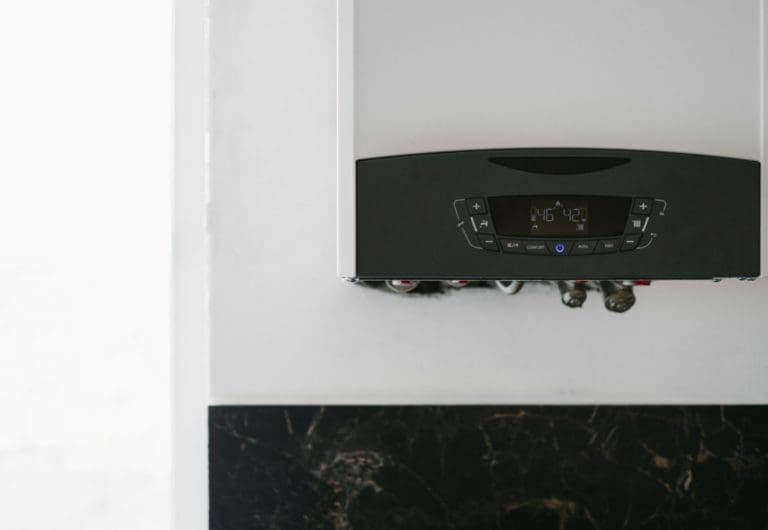Boilers play a critical role in various industries and residential settings, providing essential heating and hot water. To ensure their smooth operation and longevity, it’s crucial to establish and follow effective maintenance schedules. In this comprehensive guide, we’ll delve into the significance of boiler maintenance schedules and the array of benefits they bring. From improved efficiency to enhanced safety, we’ll explore why adhering to a maintenance plan is a wise investment for any boiler owner.
Understanding Boiler Maintenance Schedules and Benefits
Boiler maintenance involves a set of planned activities designed to keep your boiler system running optimally. These schedules encompass regular inspections, cleanings, repairs, and replacements, all aimed at preventing breakdowns and minimising downtime. By adhering to maintenance schedules, you can reap a host of benefits, such as:
Enhanced Efficiency: Maximising Performance
Regular maintenance ensures that your boiler operates at its peak efficiency. Accumulation of dirt, soot, and debris can hinder heat transfer and reduce efficiency over time. Through meticulous cleaning and tune-ups, you can maintain optimal heat exchange, resulting in lower energy consumption and reduced operating costs.
Prolonged Lifespan: Investing in Longevity
Boilers are significant investments, and their replacement can be costly. A well-maintained boiler is less likely to suffer from major malfunctions, reducing the risk of premature failure. Scheduled inspections and timely repairs address minor issues before they escalate, extending the lifespan of your boiler and providing a higher return on investment.
Improved Safety: Prioritising Well-being
Safety is paramount when it comes to boiler operation. Regular maintenance identifies and rectifies potential safety hazards, such as gas leaks or faulty pressure valves. This preventive approach safeguards against dangerous situations, protecting both occupants and property from harm.
Cost Savings: Minimising Expenses
Although maintenance requires an initial investment, it pales in comparison to the costs associated with major repairs or replacements. By addressing minor issues promptly, you prevent them from snowballing into expensive problems. Additionally, the improved efficiency resulting from maintenance translates to lower energy bills over time.
Compliance with Regulations: Meeting Standards
Various industries and jurisdictions have stringent regulations pertaining to boiler operation and safety. Regular maintenance helps ensure your boiler system remains compliant with these regulations. This not only prevents legal complications but also reflects your commitment to responsible operation.

Consistent Performance: Avoiding Disruptions
Imagine the inconvenience of a boiler breakdown, especially during colder months. Maintenance schedules mitigate this risk by identifying and rectifying issues before they lead to operational failures. This consistent performance ensures uninterrupted heating and hot water supply.
Environmental Responsibility: Reducing Carbon Footprint
Efficiently operating boilers consume less fuel, resulting in reduced greenhouse gas emissions. By adhering to maintenance schedules, you contribute to environmental conservation by minimising energy waste and your carbon footprint.
Preventive Approach: Addressing Issues Early
Maintenance schedules adopt a proactive approach to boiler care. Rather than waiting for problems to arise, routine inspections and upkeep catch issues in their infancy. This prevents minor glitches from evolving into major complications.
Expert Insight: Accessing Professional Knowledge
Engaging qualified technicians for boiler maintenance provides access to their expertise. They possess in-depth knowledge of boiler systems and can offer valuable insights on optimal operation, efficiency-enhancing practices, and troubleshooting techniques.
Minimised Downtime: Maximising Availability
Unplanned downtime due to boiler malfunctions can disrupt operations and inconvenience residents. Regular maintenance minimizes the chances of such unexpected interruptions, ensuring your boiler is available when needed the most.
Peace of Mind: Stress-Free Operation
Knowing that your boiler is well-maintained and in optimal condition brings peace of mind. You can rest assured that your heating and hot water needs will be met reliably, without the anxiety of sudden breakdowns.
FAQ's (Frequently Asked Questions) about Boiler Maintenance Schedules and Benefits
Regular maintenance should occur at least once a year, preferably before the cold season begins. However, high-usage boilers might benefit from bi-annual maintenance.
While some basic tasks like cleaning can be done by homeowners, it’s recommended to have professional technicians perform comprehensive inspections and repairs to ensure safety and efficacy.
A technician will inspect various components, clean the system, check for leaks, test safety controls, and ensure all parts are functioning optimally.
Compared to the costs of major repairs or replacements, routine maintenance is relatively affordable. It’s an investment in preventing future expenses.
Ask for recommendations from friends, family, or colleagues. Look for certified technicians with experience in boiler systems. Reading online reviews can also provide insights.
While maintenance significantly reduces the likelihood of major issues, unforeseen problems can still arise. Regular maintenance, however, minimises these occurrences.
Boiler maintenance schedules are not just routine tasks; they are essential strategies for ensuring the efficiency, safety, and longevity of your boiler system. From the financial benefits of reduced operating costs to the peace of mind that comes with reliable operation, adhering to a maintenance plan is a proactive and prudent choice for any boiler owner. By prioritizing regular maintenance, you not only enhance the performance of your boiler but also contribute to a safer and more sustainable environment.

